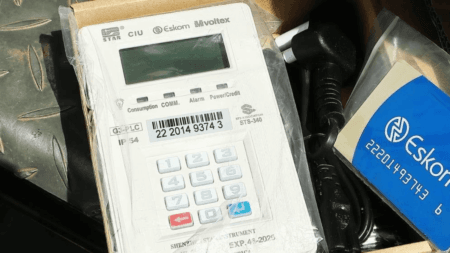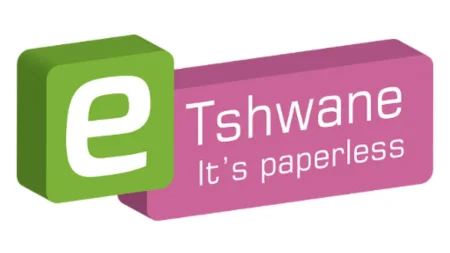Spaza shops are a vital part of the South African economy, providing essential goods and services to communities across the country. These small, informal businesses are often run from homes or converted shipping containers, and they play a crucial role in providing access to necessities in areas where larger supermarkets may be absent. If you’re considering opening a spaza shop, it’s important to understand the registration process and legal requirements involved.
This comprehensive guide will walk you through the steps to register your spaza shop and ensure you operate legally.
Costs of Registering a Spaza Shop
Registering your spaza shop involves several costs, including:
| Item | Cost |
|---|---|
| CIPC Name Reservation | R50 |
| Business Registration Fee | R175 |
| SARS Tax Registration | Free |
| Trading License | Varies by city |
| Zoning Approval Fee | Varies by area |
On average, the total cost is between R500 and R1,000.
Step-by-Step Guide to Registering Your Spaza Shop
1. Business Plan and Location
Before diving into the registration process, it’s essential to have a solid business plan and choose a suitable location.
- Business Plan: A well-structured business plan will outline your business goals, target market, product offerings, financial projections, and marketing strategy. This document will serve as your roadmap to success and help you secure funding if needed.
- Location: The location of your spaza shop is critical. Consider factors like proximity to your target market, accessibility, competition, and safety. Ensure the zoning regulations in your chosen area permit operating a spaza shop.
2. Legal Structure
Choosing the right legal structure for your spaza shop is crucial for tax purposes and liability. The most common options include:
- Sole Proprietorship: This is the simplest structure, where the business is owned and run by one person. The owner is personally liable for all business debts.
- Partnership: A partnership involves two or more individuals who share the ownership and responsibilities of the business.
- Company: Registering as a private company (Pty Ltd) provides limited liability, meaning your personal assets are protected from business debts. However, it involves more complex registration and compliance requirements.
Registration Process
The registration process for your spaza shop will vary depending on your chosen legal structure and the specific requirements of your municipality. However, here’s a general overview of the steps involved:
a) Company Registration (if applicable)
- Reserve a company name: Check name availability and reserve your preferred name with the Companies and Intellectual Property Commission (CIPC).
- Register with CIPC: Complete the necessary forms and submit them to CIPC along with the required fees. You can do this online or at a CIPC office.
- Obtain a company registration certificate: Once your application is approved, you will receive a registration certificate.
b) Municipal Business Registration
- Contact your local municipality: Visit the municipal offices or their website to inquire about the specific requirements for registering a spaza shop in your area.
- Complete application forms: Fill out the necessary forms, providing details about your business, location, and contact information.
- Submit supporting documents: You may need to submit documents such as your ID, proof of residence, business plan, and zoning certificate.
- Pay registration fees: There may be a registration fee associated with registering your business with the municipality.
- Obtain a business license: Once your application is approved, you will receive a business license allowing you to operate legally.
c) Tax Registration
- Register for Income Tax: Regardless of your legal structure, you must register for income tax with the South African Revenue Service (SARS).
- Obtain a tax clearance certificate: This certificate confirms that your tax affairs are in order.
- Register for VAT (if applicable): If your annual turnover exceeds R1 million, you must register for Value Added Tax (VAT).
Other Legal Requirements
Besides the registration process, several other legal requirements must be met when operating a spaza shop:
a) Zoning and Land Use
- Confirm zoning compliance: Ensure your chosen location is zoned for commercial or business use. You may need to obtain a zoning certificate from your municipality.
- Comply with building regulations: If you are constructing or modifying a structure for your spaza shop, ensure it complies with building regulations and obtain the necessary permits.
b) Health and Safety
- Food safety: If you sell food items, comply with food safety regulations. This may involve obtaining a certificate of acceptability from your local health department.
- Fire safety: Install fire extinguishers and ensure your premises comply with fire safety regulations.
- Occupational health and safety: Provide a safe working environment for yourself and any employees, complying with occupational health and safety legislation.
c) Environmental Regulations
- Waste management: Dispose of waste responsibly and comply with local waste management regulations.
- Noise pollution: Keep noise levels within acceptable limits, especially during nighttime hours.
d) Labor Laws
- Employment contracts: If you hire employees, provide them with written employment contracts that comply with labor laws.
- Minimum wage: Pay your employees at least the national minimum wage or any applicable sectoral minimum wage.
- UIF and Compensation Fund: Register with the Unemployment Insurance Fund (UIF) and Compensation Fund if you have employees.
Funding and Support
Starting a spaza shop often requires capital investment. Explore various funding options, including:
- Personal savings: Using your savings is the most common way to finance a spaza shop.
- Microfinance institutions: Several organizations offer microloans to small businesses.
- Government grants: Investigate government grant programs that support small business development.
- Cooperative financing: Consider joining a cooperative to access shared resources and financing opportunities.
Additionally, seek support from organizations that assist small businesses:
- Small Enterprise Development Agency (SEDA): SEDA provides training, mentorship, and business development support.
- National Empowerment Fund (NEF): NEF offers financial and non-financial support to black-owned businesses.
- Local business associations: Join local business associations to network and access resources.
Related: Unlocking Growth: Township and Rural Entrepreneurship Programme (TREP)
Operating Your Spaza Shop
Once you have registered your spaza shop and met all legal requirements, you can focus on running your business successfully. Here are some key aspects to consider:
a) Product Selection and Pricing
- Cater to your target market: Offer products that are in demand in your community.
- Competitive pricing: Research prices at other spaza shops and supermarkets to set competitive prices.
- Stock control: Manage your inventory effectively to avoid stockouts or wastage.
b) Customer Service
- Friendly and helpful service: Provide excellent customer service to build loyalty.
- Clean and organized shop: Maintain a clean and organized shop to attract customers.
- Community engagement: Build relationships with your customers and get involved in the community.
c) Security
- Security measures: Implement security measures such as burglar bars, alarms, and CCTV cameras to protect your business.
- Insurance: Consider insurance policies to cover theft, fire, and other potential risks.
d) Record Keeping
- Financial records: Maintain accurate financial records for tax purposes and business management.
- Inventory records: Keep track of your stock levels to ensure efficient inventory management.
Growth and Expansion
As your spaza shop grows, consider opportunities for expansion and diversification:
- Increase product range: Introduce new products based on customer demand and market trends.
- Offer value-added services: Consider offering services such as airtime sales, money transfers, or photocopying.
- Expand your premises: If your business outgrows your current location, consider expanding or relocating to a larger space.
- Embrace technology: Utilize technology to improve efficiency, such as point-of-sale systems and online ordering platforms.
Registering your spaza shop is a crucial step towards operating legally and building a sustainable business. By following the steps outlined in this guide and complying with all legal requirements, you can establish a thriving spaza shop that serves your community and contributes to the South African economy.
Remember to stay informed about any changes in legislation and seek support from relevant organizations to ensure your business remains compliant and successful.
Related News: Township Residents Call for Ban on Foreigners Running Spaza Shops to Boost Local Economy










